
Introduction
In recent years, there has been growing interest in the relationship between diet and gut health. Among the many foods touted for their health benefits, rye sourdough has gained attention. This article delves into whether rye sourdough is good for your gut and explores the science behind its potential benefits. We will cover everything from the basics of what rye sourdough is, to its nutritional profile, to its specific impacts on gut health. We will also compare it with other types of bread and discuss potential downsides. By the end of this article, you’ll have a comprehensive understanding of how rye sourdough can fit into a gut-healthy diet.
What is Rye Sourdough?
Rye sourdough is a type of bread made from rye flour and fermented using naturally occurring lactic acid bacteria and yeast. This fermentation process gives the bread its distinctive tangy flavor and chewy texture. Rye sourdough has a long history, particularly in European countries like Germany and Russia, where it has been a staple for centuries. The fermentation process not only enhances the flavor and texture of the bread but also brings about significant nutritional benefits.
The Difference Between Rye Sourdough and Regular Sourdough
While both rye sourdough and regular sourdough go through a similar fermentation process, there are key differences between the two. Rye flour has less gluten compared to wheat flour, which affects the texture and rise of the bread. Rye sourdough tends to be denser and has a more robust flavor than regular sourdough. Additionally, rye flour is rich in certain nutrients and fibers that are beneficial for gut health. Learn more about the difference between rye sourdough and regular sourdough.
The Science Behind Sourdough Fermentation
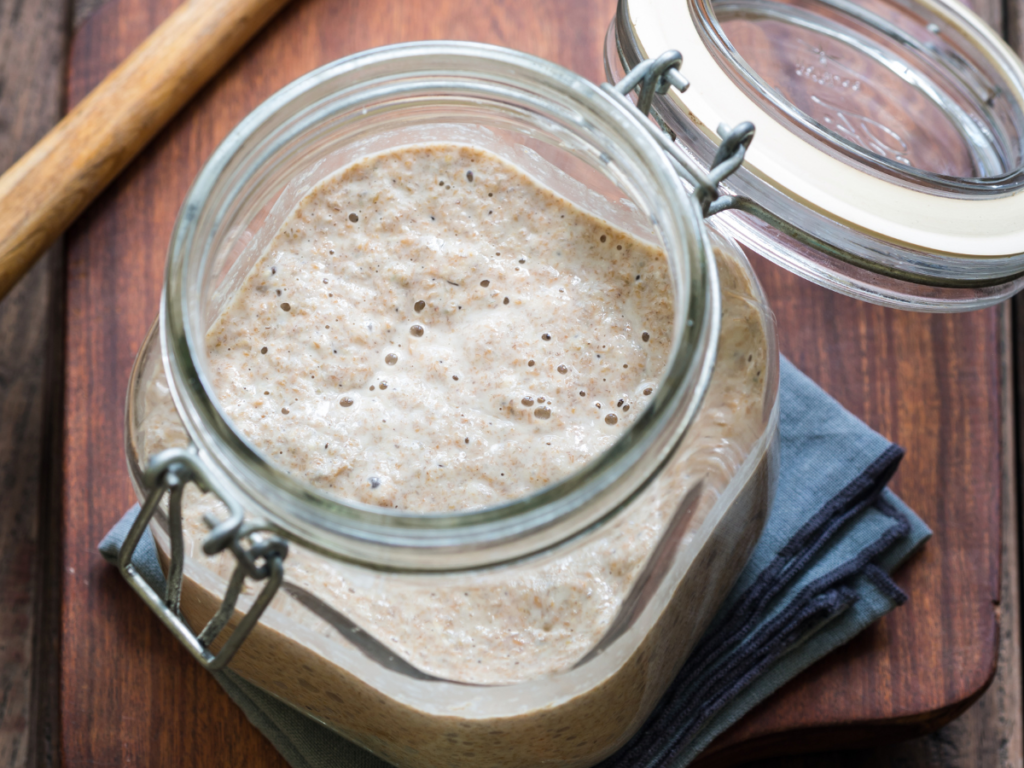
The fermentation process involved in making sourdough is unique compared to other types of bread. During fermentation, lactic acid bacteria and yeast break down the sugars in the flour, producing lactic acid. This not only imparts a tangy flavor but also makes the bread more digestible and increases the availability of nutrients.
Key Benefits of Fermentation:
- Improved Digestibility: Fermentation breaks down gluten and other proteins, making them easier to digest. This is particularly beneficial for individuals with gluten sensitivity, as the fermentation process reduces the gluten content in the bread, though it does not eliminate it entirely.
- Enhanced Nutrient Absorption: The acidic environment created during fermentation helps release minerals like iron and zinc, making them more bioavailable. This ensures that your body can absorb and utilize these nutrients more efficiently.
- Probiotics: The presence of beneficial bacteria supports a healthy gut microbiota. These probiotics can help balance the gut flora, which is crucial for digestive health and overall well-being.
For more on the health benefits of sourdough, see the Health Benefits of Sourdough Bread.
Nutritional Profile of Rye Sourdough
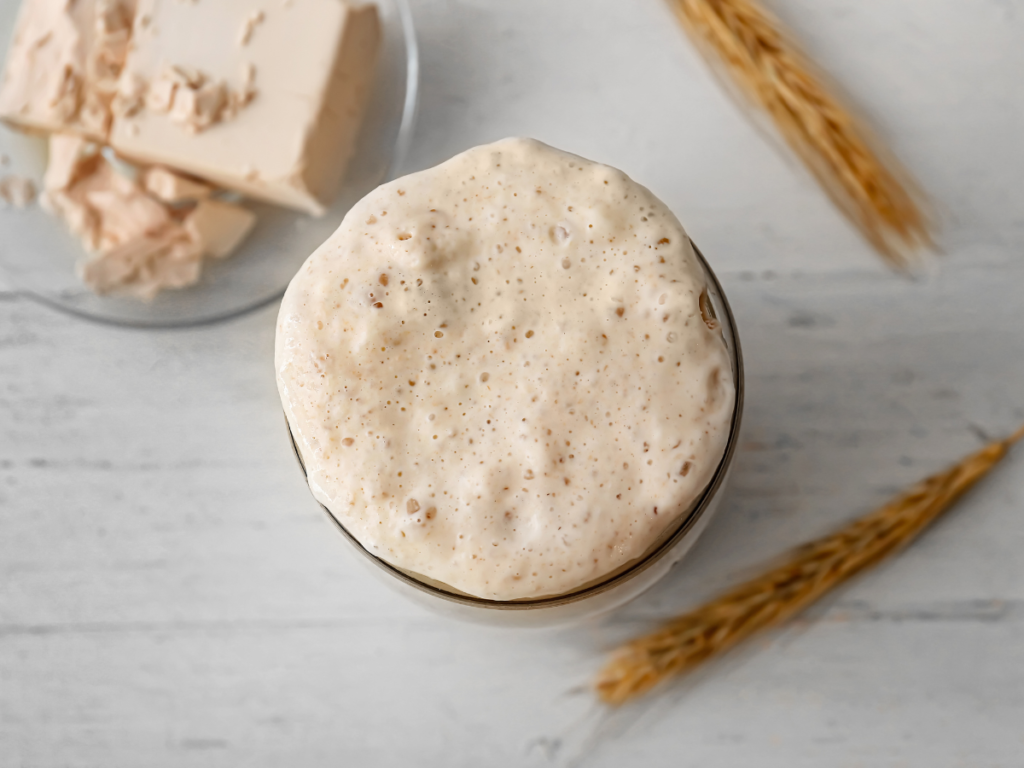
Rye sourdough is rich in essential nutrients and dietary fiber. Compared to wheat bread, rye sourdough has a higher concentration of:
- Fiber: Supports digestive health and regular bowel movements. High-fiber diets are associated with a lower risk of various chronic diseases, including heart disease, diabetes, and certain cancers.
- Vitamins: Especially B vitamins, which are essential for energy metabolism. B vitamins also play a role in brain function and the production of DNA and red blood cells.
- Minerals: Including magnesium, iron, and zinc, important for various bodily functions. Magnesium is vital for muscle and nerve function, blood sugar regulation, and maintaining bone health. Iron is crucial for oxygen transport in the blood, and zinc supports immune function and wound healing.
For more details on the health benefits of rye bread, check out Is Rye Bread Healthy?.
Gut Health: An Overview

Gut health is vital for overall well-being. The gut microbiota, a complex community of microorganisms in the digestive tract, plays a crucial role in digestion, immune function, and even mental health. A balanced diet rich in fiber, probiotics, and prebiotics is essential for maintaining a healthy gut. For those considering dietary options, you might be interested in understanding is sourdough bread OK if you are gluten-free.
Importance of Gut Microbiota
The gut microbiota comprises trillions of microorganisms, such as bacteria, viruses, fungi, and other microbes. These microorganisms play a key role in digesting food, producing certain vitamins, regulating the immune system, and protecting against harmful bacteria. An imbalance in the gut microbiota, known as dysbiosis, has been linked to various health problems, including digestive disorders, obesity, type 2 diabetes, and even mental health issues like depression and anxiety.
Role of Diet in Gut Health
Diet is one of the most significant factors influencing the composition and function of the gut microbiota. Diets high in fiber, fermented foods, and a variety of plant-based foods are associated with a more diverse and stable gut microbiota. Conversely, diets high in processed foods, sugar, and unhealthy fats can negatively impact gut health.
How Rye Sourdough Benefits Gut Health
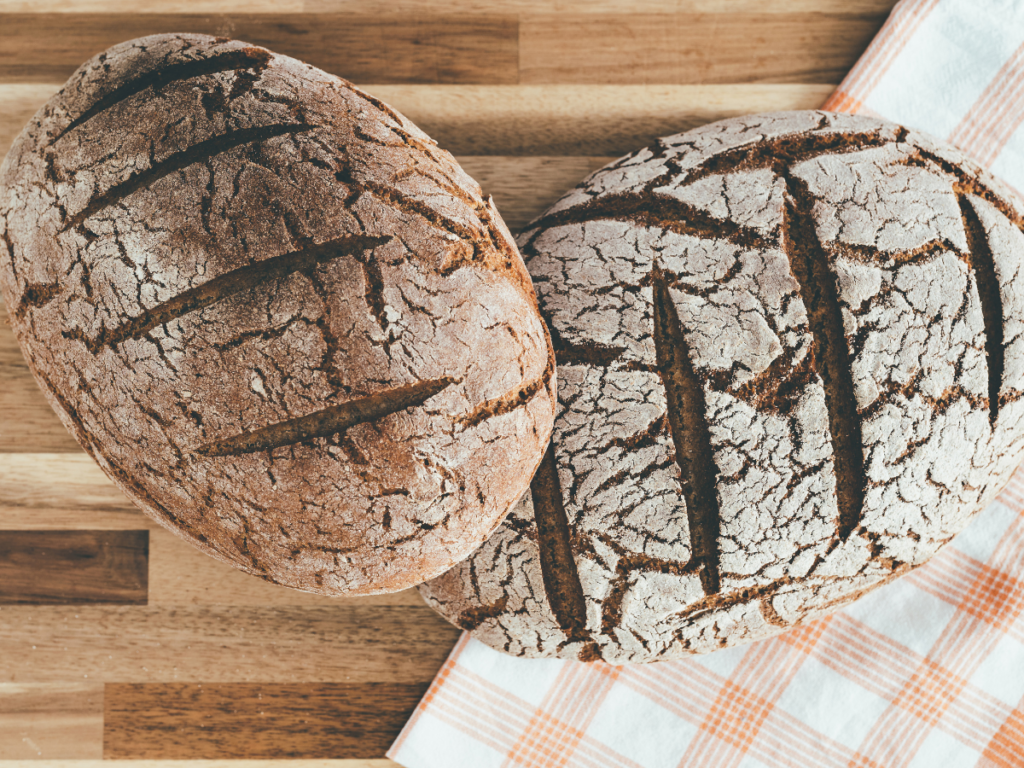
Probiotics and Prebiotics
- Probiotics: The fermentation process in rye sourdough introduces beneficial bacteria, which can help balance the gut microbiota. These probiotics can enhance the gut’s barrier function, reduce inflammation, and improve immune response.
- Prebiotics: The high fiber content serves as food for these beneficial bacteria, promoting their growth and activity. Prebiotics are non-digestible food components that beneficially affect the host by selectively stimulating the growth and/or activity of one or a limited number of beneficial bacteria in the colon.
Impact on Gut Microbiota
Studies have shown that the regular consumption of fermented foods like rye sourdough can positively influence the composition of gut microbiota, enhancing the abundance of beneficial bacteria such as Lactobacillus. These beneficial bacteria can help maintain a balanced gut microbiota, which is crucial for optimal digestive health.
Supporting Studies
Several studies support the benefits of fermented foods for gut health. They indicate improvements in digestive health, reduced inflammation, and even enhanced immune function among regular consumers of sourdough bread. For example, a study published in the journal Nutrients found that the consumption of sourdough bread was associated with a higher abundance of beneficial gut bacteria and a reduction in gut inflammation.
Comparing Rye Sourdough with Other Breads
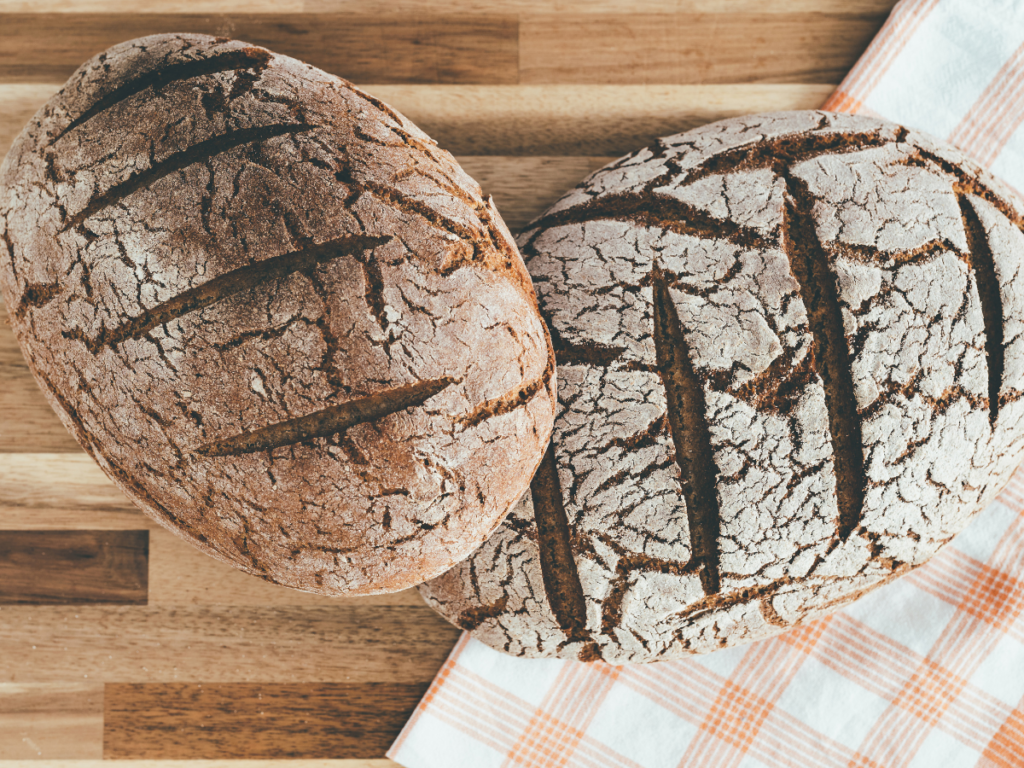
Rye Sourdough vs. Regular Sourdough
- Fiber Content: Rye sourdough generally has more fiber than regular sourdough. Fiber is crucial for maintaining healthy bowel movements and preventing constipation. It also serves as a prebiotic, nourishing the beneficial bacteria in your gut.
- Nutrient Density: Rye flour is richer in essential nutrients compared to wheat flour. This makes rye sourdough a more nutrient-dense option, providing more vitamins and minerals per serving.
Rye Sourdough vs. Whole Wheat and White Bread
- Digestibility: The fermentation process makes rye sourdough easier to digest than unfermented whole wheat or white bread. This is especially advantageous for individuals with sensitive digestive systems.
- Blood Sugar Control: Rye sourdough has a lower glycemic index, aiding in better blood sugar management. Foods with a low glycemic index are digested and absorbed more slowly, leading to a gradual and smaller increase in blood sugar levels. This can benefit individuals with diabetes or anyone looking to manage their blood sugar levels effectively.
Potential Downsides and Considerations
While rye sourdough has many benefits, it may not be suitable for everyone.
Allergies and Intolerances
- Gluten Sensitivity: Although fermentation reduces gluten content, it is not completely gluten-free and may not be suitable for people with celiac disease or severe gluten intolerance. For those who are gluten-sensitive, consider exploring gluten-free sourdough bread recipes.
- Rye Allergy: Some individuals may be allergic to rye and should avoid rye-based products. Symptoms of a rye allergy can include digestive issues, skin rashes, and respiratory problems.
Dietary Considerations
- Carbohydrate Content: Rye sourdough, like other breads, is high in carbohydrates and should be consumed in moderation, especially by those managing blood sugar levels. It’s important to balance your carbohydrate intake with other nutrients and to choose whole grains and high-fiber options when possible.
- Caloric Intake: As with any food, it’s important to consider portion sizes. Overconsumption of bread, even if it’s healthy, can contribute to excess calorie intake and weight gain.
How to Incorporate Rye Sourdough into Your Diet

Tips for Daily Meals
- Breakfast: Toast with avocado or eggs. Rye sourdough toast topped with avocado, a poached egg, and a sprinkle of salt and pepper makes a delicious and nutritious breakfast.
- Lunch: Sandwiches with lean protein and vegetables. Use rye sourdough to make a hearty sandwich with turkey, lettuce, tomato, and a slice of cheese.
- Dinner: Serve as a side with soups and stews. Rye sourdough pairs well with hearty soups and stews, providing a satisfying and nutritious complement to your meal.
Recipe Ideas and Serving Suggestions
- Rye Sourdough Bruschetta: Top with tomatoes, basil, and mozzarella. Toast slices of rye sourdough and top with a mixture of diced tomatoes, fresh basil, and mozzarella cheese for a tasty appetizer.
- Open-faced Sandwiches: Use smoked salmon, cream cheese, and dill. Spread cream cheese on a slice of rye sourdough, top with smoked salmon, and garnish with fresh dill for a delicious and elegant open-faced sandwich.
Making Rye Sourdough at Home
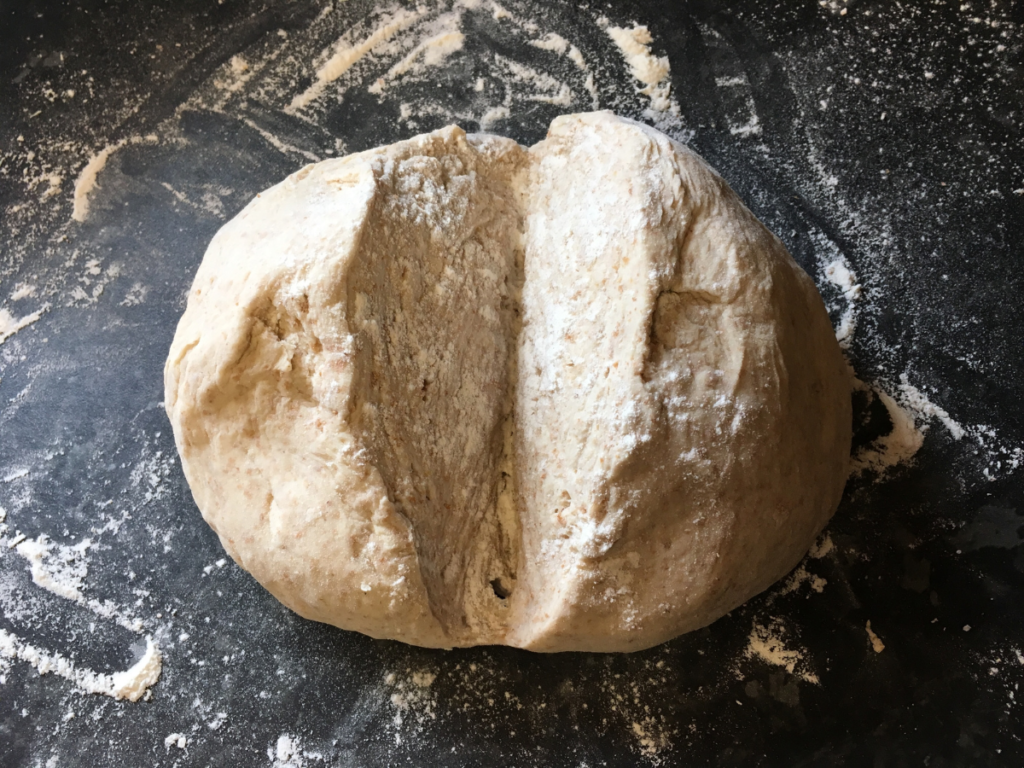
Basic Recipe and Steps
- Ingredients: Rye flour, water, sourdough starter, and salt.
- Mixing: To start the fermentation process, combine the rye flour, water, sourdough starter, and salt in a large bowl. Ensure all ingredients are well mixed. Cover the bowl and let it rest at room temperature for 12-24 hours. This step is crucial for allowing the dough to ferment properly, resulting in a flavorful and well-risen sourdough.
- Shaping: Shape the dough and let it rise. After fermentation, shape the dough into a loaf and place it in a proofing basket or on a baking sheet. Let it rise for another 1-2 hours.
- Baking: Bake at the appropriate temperature until done. Preheat your oven to 450°F (230°C). Bake the loaf for 30-40 minutes or until the crust is golden brown and the internal temperature reaches 200°F (93°C).
Tips for Successful Baking
- Use a mature sourdough starter for best results. A well-established starter will produce a better rise and flavor.
- Allow ample time for fermentation to enhance both flavor and texture. Extended fermentation results in more intricate flavors and a superior texture, making your sourdough bread truly exceptional. The longer the fermentation period, the richer and more developed the taste, ensuring a delightful eating experience.
For a detailed guide on making rye sourdough at home, visit Making Rye Sourdough at Home.
Conclusion
Rye sourdough offers numerous benefits for gut health due to its unique fermentation process, high fiber content, and rich nutrient profile. While it may not be suitable for everyone, incorporating rye sourdough into a balanced diet can support digestive health and overall well-being. Enjoying rye sourdough in moderation can be a delicious and nutritious way to promote a healthy gut. Whether you’re looking to improve your gut health, enjoy a nutritious bread option, or simply love the taste of sourdough, rye sourdough is a great choice to include in your diet.
FAQs
Is rye sourdough the healthiest bread?
Rye sourdough is considered one of the healthiest breads due to its high fiber content, nutrient density, and the beneficial effects of the fermentation process. It offers a lower glycemic index compared to other breads, which can help regulate blood sugar levels.
Is sourdough rye bread good for IBS?
Sourdough rye bread can be beneficial for individuals with IBS (Irritable Bowel Syndrome). The fermentation process helps break down some of the complex carbohydrates and gluten, making it easier to digest and potentially reducing IBS symptoms. However, individual tolerance can vary, so it’s best to consult with a healthcare provider.
Is sourdough rye bread hard to digest?
Sourdough rye bread is generally easier to digest than regular rye bread due to the fermentation process, which breaks down gluten and other complex components. This makes it a suitable option for those with mild gluten sensitivities or digestive issues.
Is rye bread good for your stomach?
Yes, rye bread is good for your stomach. It is high in dietary fiber, which promotes healthy digestion and regular bowel movements. The prebiotic fibers in rye also support the growth of beneficial gut bacteria, contributing to overall gut health.
